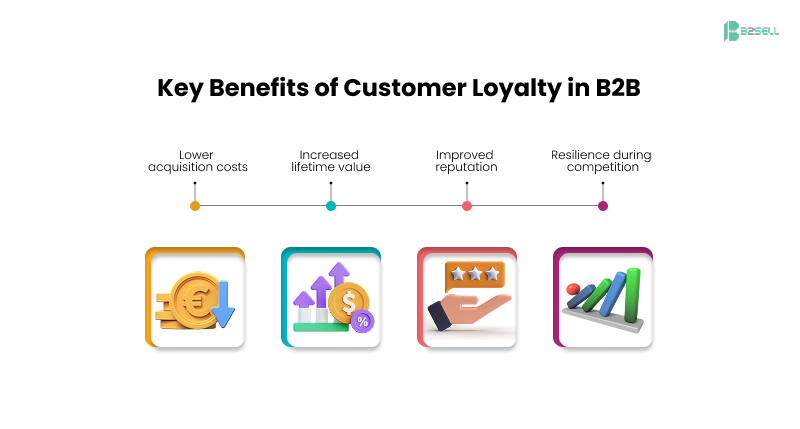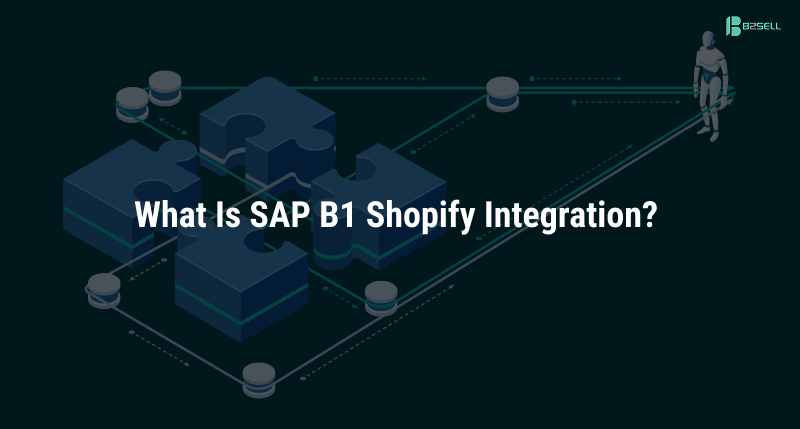Customer Loyalty in B2B: 6 Ways PIM Software Builds Trust and Repeat Business
Introduction: Why Customer Loyalty Matters More Than Ever in B2B
In today’s competitive B2B landscape, customer loyalty is no longer just a nice-to-have—it’s a critical driver of sustainable growth. Businesses that foster strong relationships with their clients enjoy repeat business, higher lifetime value, and a competitive edge that is difficult to replicate. However, managing and delivering accurate, consistent product information across multiple channels can be a challenge for distributors, manufacturers, and wholesalers. This is where Best PIM Software comes into play.
Product Information Management (PIM) systems are designed to centralize, manage, and distribute product data efficiently across channels, ensuring that your B2B customers always have the information they need to make informed purchasing decisions. In this guide, we explore six ways that PIM software can enhance customer loyalty in B2B, build trust, and drive repeat business, with a focus on promoting B2Sell PIM as the ultimate solution.
Why Customer Loyalty and Trust are Crucial in B2B
Unlike B2C, where customers might make one-time purchases, B2B success depends heavily on repeat business and long-term relationships. Loyal customers not only generate recurring revenue but also become advocates and trusted partners in growth.
Key Benefits of Customer Loyalty in B2B:

- Lower acquisition costs: Retaining customers is cheaper than finding new ones.
- Increased lifetime value: Loyal clients spend more over time.
- Improved reputation: Satisfied customers recommend your business to others.
- Resilience during competition: Trust shields relationships from being swayed by pricing alone.
When customers trust the accuracy of product information, pricing, and availability, they are more likely to stick with a brand, even when competitors try to lure them away.
What is PIM Software?
PIM software (Product Information Management software) is a centralized platform that helps businesses collect, manage, enrich, and distribute accurate product data across multiple channels. Instead of struggling with spreadsheets, disconnected databases, or outdated ERP feeds, companies use a PIM system to ensure every stakeholder—customers, sales reps, partners, and retailers—accesses the same consistent, accurate product information.
Key Functions of PIM Software:
- Centralizing product data from multiple sources (ERP, suppliers, internal systems)
- Enriching product content with images, videos, descriptions, and specifications
- Distributing product data to ecommerce platforms, marketplaces, CRMs, and print catalogs
- Supporting PIM integration with ERP, ecommerce, and CRM tools
- Scaling product information across multiple regions, languages, and currencies
👉 In short, PIM software ensures that businesses deliver the right product information, at the right time, through the right channel.
How PIM Software Builds Loyalty and Repeat Business
PIM software is more than a digital catalog—it’s a B2B customer loyalty platform that directly impacts client satisfaction. Here’s how:

1. Consistent Product Data Across Channels
One of the primary reasons businesses lose customer trust is inconsistent information across platforms. The best PIM software for ecommerce sites ensures that product descriptions, specifications, pricing, and images are uniform across all channels.
Benefits include:
- Reduced errors in orders
- Professional and trustworthy brand presentation
- Enhanced customer satisfaction and loyalty
By centralizing and standardizing product information, PIM minimizes errors and ensures customers receive exactly what they expect, increasing trust and repeat business.
2. Faster and Accurate Product Updates
In B2B, product lines frequently change. Manual updates can be slow and error-prone, impacting customer trust. A PIM for ecommerce and B2B platforms streamlines product updates, allowing businesses to:
- Quickly add new products or SKUs
- Update specifications, pricing, and promotions in real-time
- Ensure that all sales channels reflect the latest product data
Speed and accuracy directly correlate with customer satisfaction, particularly in fast-moving industries like manufacturing and distribution.
3. Personalized Customer Experiences
Modern B2B buyers expect personalized interactions, similar to B2C customers. Best PIM software for B2B enables businesses to:
- Segment product catalogs based on buyer profiles
- Display relevant products and bundles
- Tailor pricing, promotions, and recommendations
This personalization enhances loyalty by showing customers that your company understands their unique needs.
4. Seamless Integration with B2B Platforms
A B2B customer loyalty platform works best when integrated seamlessly with existing systems like ERP, CRM, and ecommerce platforms. PIM solutions like B2Sell offer:
- Direct integration with Shopify, Magento, BigCommerce, and NetSuite
- Sync with ERP systems to reduce manual data entry
- Cross-channel consistency that builds customer confidence
Integration ensures customers receive accurate information regardless of where they interact with your brand.
5. Data-Driven Insights for Strategic Decisions
Advanced PIM software collects and analyzes product data, giving businesses actionable insights. Features include:
- Tracking product performance and inventory trends
- Identifying best-selling items and underperforming SKUs
- Making informed decisions for procurement, marketing, and sales
Data-driven insights strengthen customer loyalty by ensuring availability, timely updates, and relevant offerings.
6. Enhanced Trust Through Compliance and Transparency
B2B customers increasingly demand transparency and compliance with industry standards. PIM for distributors helps:
- Maintain regulatory compliance across multiple regions
- Provide accurate technical specifications and safety data
- Build credibility with detailed, verified product information
By ensuring compliance and transparency, businesses reinforce trust—a cornerstone of long-term B2B customer loyalty.
PIM Software for Manufacturers, Distributors, and Wholesalers
Different B2B players benefit uniquely from PIM software:
PIM for Manufacturers
- Manage thousands of SKUs with complex attributes
- Provide accurate technical documentation
- Enable global product launches with multilingual content
PIM for Distributors
- Aggregate product data from multiple suppliers
- Deliver enriched product content to resellers
- Maintain real-time updates for inventory and pricing
PIM for Wholesalers
- Ensure consistent data across ecommerce, catalogs, and marketplaces
- Personalize product catalogs for different buyers
- Improve efficiency in order processing and support
Choosing the Best PIM Software: What to Look For
When evaluating the best PIM software, businesses should consider:
- Ease of integration with ERP, ecommerce, and CRM systems
- Scalability to manage growing product catalogs
- Flexibility for supporting multiple regions, languages, and currencies
- User-friendliness for non-technical teams
- Automation capabilities for faster data syndication
Future of Customer Loyalty with PIM Software
With the rise of AI-driven product search and conversational commerce, PIM software will play an even greater role in ensuring businesses remain discoverable and trusted.
Imagine a world where a buyer asks an AI assistant: “Find me the best industrial motor with ISO certification, available in bulk.”
The businesses that have their PIM system integrated with AI-friendly structured data will be the ones winning those queries—and ultimately, customer loyalty.
Why B2Sell is the Best PIM Solution for B2B
At B2Sell, we understand the unique challenges faced by manufacturers, distributors, and wholesalers. Our PIM software is designed specifically for B2B businesses—helping you:

1. Purpose-Built PIM Software for B2B Needs
Designed for manufacturers, distributors, and wholesalers—not generic retail.
2. Seamless PIM Integration with ERP, CRM, and Ecommerce
Works effortlessly with ERP, ecommerce, CRM, and marketplaces.
3. Multi-Channel and Omnichannel Product Data Syndication
Delivers data consistently across websites, apps, and portals.
4. Scalability to Handle Growing Product Catalogs
From thousands to millions of SKUs without performance issues.
5. Built-In Support for Manufacturers and Distributors
- For Manufacturers: Manage specs, certifications, and rollouts.
- For Distributors: Consolidate supplier data and normalize attributes.
6. Automation for Faster Time-to-Market
Automated enrichment, validation, and syndication.
7. Rich Product Content Management
Supports videos, datasheets, and 3D assets.
8. Multi-Language and Multi-Currency Capabilities
Perfect for global B2B operations.
9. Enhanced Data Accuracy and Compliance
Ensures regulatory trust and product accuracy.
10. AI-Friendly and Future-Ready PIM System
Structured for Google AI Overviews, ChatGPT, and conversational search.
11. User-Friendly Dashboard and Role-Based Access
Accessible for technical and non-technical teams.
12. Superior Customer Support and Implementation Services
Dedicated onboarding, training, and expert support.
13. Proven Results: Driving Loyalty and Repeat Business
Boosts accuracy, reduces churn, and accelerates product launches.
👉 Explore B2Sell’s PIM Software here: B2Sell Product Information Management
Conclusion: PIM Software is the Backbone of Customer Loyalty in B2B
Customer loyalty in B2B is built on trust, consistency, and personalized experiences. Implementing the best PIM software, like B2Sell, ensures accurate product data, seamless integration, and data-driven insights that enhance customer satisfaction.
By investing in PIM, businesses can:
- Reduce errors and build credibility
- Offer personalized, relevant experiences
- Drive repeat purchases and long-term partnerships
In the competitive B2B landscape, B2Sell PIM isn’t just software—it’s a strategic tool to build trust, loyalty, and sustainable growth.
👉 Discover how B2Sell’s Best PIM Software can help your business grow stronger relationships and achieve lasting success. Learn more about B2Sell PIM here



.png)



.png)